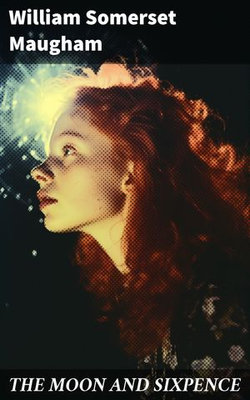In "The Moon and Sixpence," William Somerset Maugham crafts a captivating narrative inspired by the life of the painter Paul Gauguin, exploring themes of artistic ambition, existential longing, and the dichotomy between societal expectations and personal fulfillment. Through a semi-autobiographical lens, Maugham employs a richly descriptive prose style marked by keen psychological insight and philosophical undercurrents. The book oscillates between a brisk, engaging storytelling approach and moments of introspective depth, reflecting the early 20th-century literary responses to modernity and the complexities of the human condition, inviting readers to ponder the true nature of success and happiness. Maugham, a prolific English writer, was deeply influenced by his own experiences in the bohemian world of art and travel, which resonate throughout the narrative of "The Moon and Sixpence." His encounters with artists and his understanding of their struggles allowed him to delve into the psyche of the protagonist, Charles Strickland, who rejects the comforts of bourgeois life in pursuit of fleeting artistic ideals. Maugham'Äôs exploration of this tension reflects a broader critique of conventional norms and a search for deeper truths that informed not only his writing but also his life. Readers enchanted by the complexities of artistic pursuit and those interested in the psychology of creativity will find "The Moon and Sixpence" an indispensable read. Maugham'Äôs exploration of passion, sacrifice, and the pursuit of one'Äôs innate calling evokes profound questions about the sacrifices made for art and the legacy of those deemed unconventional. This novel is an invitation to reflect on what it means to live authentically and to question the very foundations of societal success.



Share This eBook: